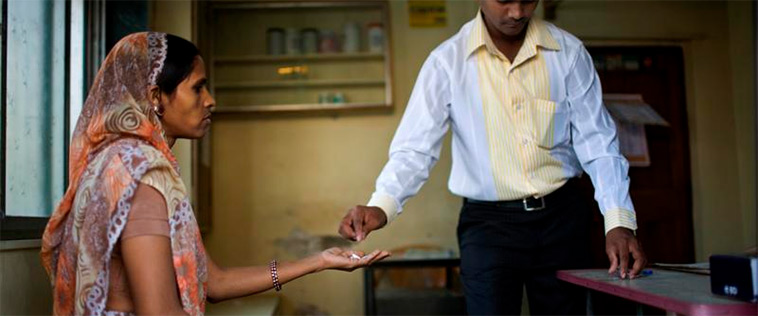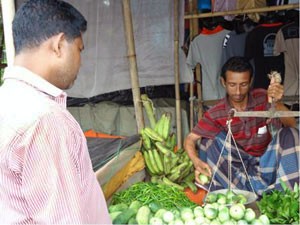- What We Do
- Agriculture and Food Security
- Democracy, Human Rights and Governance
- Economic Growth and Trade
- Education
- Ending Extreme Poverty
- Environment and Global Climate Change
- Gender Equality and Women's Empowerment
- Global Health
- Water and Sanitation
- Working in Crises and Conflict
- U.S. Global Development Lab

Improve Access to High-quality, Patient-centered TB, DR-TB and TB/HIV Services
To reach the ultimate goal of a world free of tuberculosis (TB), USAID will work with the global community to achieve universal access to high-quality, patient-centered services for TB, drug-resistant TB (DR-TB) and TB-HIV. For this to happen, USAID must address challenges to access, such as cost of services, distance to facilities, hours of operation, and social stigma. The U.S. Government will help countries get TB services to populations at high risk of TB by:
- Providing support for an enabling environment that includes social support packages
- Expanding and strengthening a comprehensive, high-quality diagnostic network
- Developing a patient-centered care and treatment approach
Treating Multidrug-Resistant Tuberculosis at Home in Bangladesh

In 2009, Ruhul Amin from Chittagong, the port city of Bangladesh, began to experience a persistent cough and fever – typical symptoms of tuberculosis (TB). He tried medicine from a local pharmacist; when they did not work, he was referred for a sputum test and diagnosed with TB. Unfortunately, Ruhul’s TB did not respond to the routine treatment or the follow-up therapy. After additional investigations, he was finally diagnosed with multidrug-resistant TB (MDR-TB), often caused by irregularly taking anti-TB drugs.
Due to a shortage of beds at the hospital, Ruhul had to wait 10 months before starting his treatment there. After a short stay at the hospital, he was transferred home to complete his TB treatment under a community-based treatment model to increase early access to MDR-TB treatment. The model had been introduced in Bangladesh by TB CARE II, a project supported by the U.S. Agency for International Development. Read the full story.







Comment
Make a general inquiry or suggest an improvement.